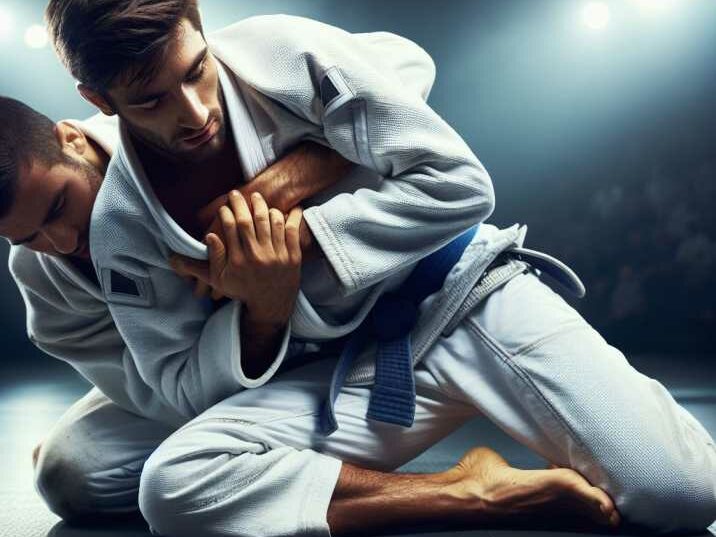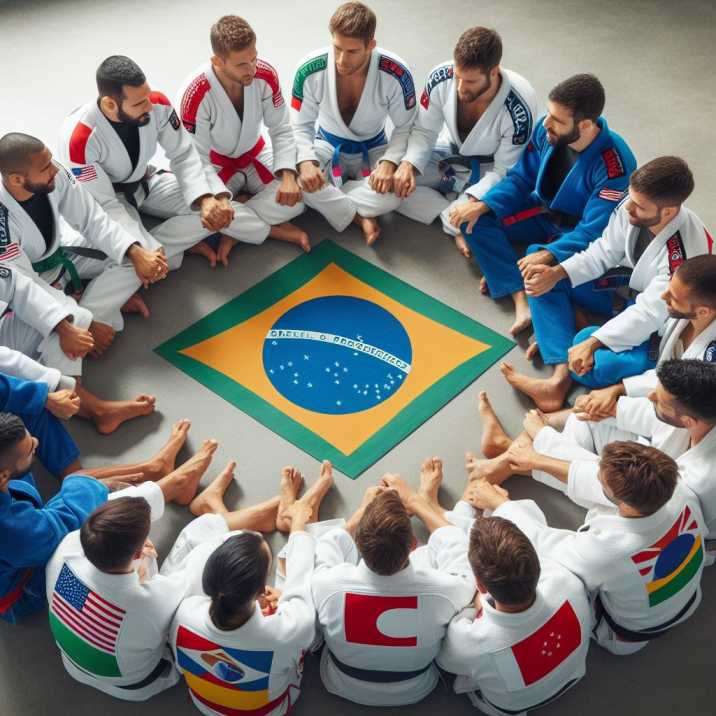Introduction:
Table of Contents
Jiu Jitsu, a martial art with deep roots in Japanese tradition, has gained immense popularity worldwide for its effectiveness in self-defense, physical fitness, and mental discipline. As practitioners and enthusiasts of this art, many have pondered the question: Is Jiu Jitsu an Olympic Sport? In this article, we delve into the various aspects surrounding this intriguing question, exploring the possibilities and realities of Jiu Jitsu’s potential inclusion in the Olympic Games.

Is Jiu Jitsu an Olympic Sport?
Curious about Jiu-Jitsu in the Olympics? Discover the facts, insights, and tips about Jiu Jitsu.
- The Origins and Evolution of Jiu Jitsu
- Originating in Japan, Jiu Jitsu traces its roots back to ancient samurai combat techniques.
- Evolving over centuries, it has developed into various forms, including Brazilian Jiu Jitsu (BJJ), which gained global prominence.
- Understanding the rich history of Jiu Jitsu provides context for its modern-day status and potential as an Olympic sport.
- Criteria for Olympic Sport Inclusion
- The International Olympic Committee (IOC) has specific criteria for sports seeking inclusion in the Jitsu’s Olympic games.
- Factors such as global popularity, universality, gender equity, and adherence to Olympic values play crucial roles.
- Analyzing how Jiu Jitsu measures up against these criteria sheds light on its prospects for Olympic recognition.
- Jiu Jitsu’s Global Popularity and Participation
- Jiu Jitsu has witnessed a surge in popularity worldwide, with millions of practitioners spanning various age groups and demographics.
- Major tournaments like the World Jiu Jitsu Championship attract competitors from diverse countries, showcasing the sport’s global appeal.
- Examining participation trends and demographic data provides insights into Jitsu’s Olympic potential as a universally recognized sport.
- International Jiu Jitsu Federations and Governing Bodies
- Various international federations and governing bodies oversee the promotion and regulation of Jitsu’s Olympics at the global level.
- Organizations like the International Brazilian Jiu Jitsu Federation (IBJJF) and the United World Wrestling (UWW) play pivotal roles in shaping the sport’s trajectory.
- Understanding the structure and influence of these entities is crucial in assessing Jiu Jitsu’s Olympic aspirations.
- Jiu Jitsu’s Adaptability and Accessibility
- One of Jiu Jitsu’s defining features is its adaptability to practitioners of all ages, sizes, and fitness levels.
- Unlike some traditional martial arts, Jiu Jitsu emphasizes technique and leverage over sheer strength, making it accessible to a wide range of individuals.
- Exploring how Jiu Jitsu promotes inclusivity and accessibility aligns with the Olympic ideal of sport for all.
- Challenges and Obstacles to Olympic Recognition
- Despite its growing popularity and global reach, Jiu Jitsu faces several challenges on its path to Olympic recognition.
- Issues such as the lack of a unified ruleset, governance disputes, and concerns about injury prevention pose significant hurdles.
- Identifying and addressing these challenges is essential for Jiu Jitsu’s progression towards potential Olympic inclusion.
- Success Stories and Olympic Aspirations
- Several martial arts, including judo and taekwondo, have successfully transitioned from niche disciplines to Olympic sports.
- Drawing inspiration from these success stories, Jiu Jitsu practitioners and advocates envision a future where their beloved art takes center stage at the Olympic Games.
- Highlighting notable athletes and their journeys underscores the potential impact of Jiu Jitsu’s Olympic aspirations.

Table of information related to the topic “Is Jiu Jitsu an Olympic Sport?
| Criteria for Olympic Sport Inclusion | Details |
|---|---|
| Global Popularity | Jiu Jitsu has millions of practitioners worldwide, with a strong presence in over 150 countries. Major tournaments like the World Jiu Jitsu Championship attract participants from diverse backgrounds. |
| Universality | Jiu Jitsu’s accessibility and adaptability make it a sport for people of all ages, genders, and abilities. Its techniques emphasize leverage and strategy over raw strength, allowing individuals to participate regardless of physical attributes. |
| Gender Equity | Jiu Jitsu promotes gender equity through separate divisions for men and women in competitions. Many academies also offer women’s self-defense classes, empowering individuals of all genders. |
| Adherence to Olympic Values | Jiu Jitsu embodies Olympic values such as respect, excellence, and friendship. Its emphasis on discipline, integrity, and sportsmanship aligns with the spirit of the Olympic Games. |
| Governing Bodies and Regulation | International federations like the International Brazilian Jiu Jitsu Federation (IBJJF) and governing bodies like the United World Wrestling (UWW) oversee the promotion and regulation of Jiu Jitsu at the global level. |
| Challenges to Olympic Recognition | Challenges include the lack of a unified ruleset across different Jiu Jitsu organizations, governance disputes, and concerns about injury prevention. Addressing these issues is crucial for Jiu Jitsu’s Olympic aspirations. |
| Success Stories and Inspirations | Success stories from other martial arts, such as judo and taekwondo, inspire Jiu Jitsu practitioners and advocates. These examples demonstrate the potential for niche disciplines to achieve Olympic recognition and global prominence. |
Conclusion:
In conclusion, the question of whether Jiu Jitsu will become an Olympic Sport remains open, yet filled with optimism and possibility. As we’ve explored, Jiu Jitsu possesses many qualities that align with the Olympic values of excellence, friendship, and respect. While challenges exist, the global community of Jiu Jitsu practitioners remains committed to advancing the sport’s Olympic aspirations. Whether it’s through continued advocacy, standardization of rules, or fostering inclusivity, the journey towards Olympic recognition is a collective endeavor. As we eagerly anticipate the future, one thing is certain: the spirit of Jiu Jitsu will continue to inspire and unite individuals around the world, Olympic dreams or not.
FAQs (Frequently Asked Questions):
- Is Jiu Jitsu similar to judo?
- While both Jiu Jitsu and judo originated in Japan, they have distinct techniques and rulesets. Judo focuses on throws and takedowns, while Jiu Jitsu incorporates ground grappling and submissions.
- What are the health benefits of practicing Jiu Jitsu?
- Jiu Jitsu offers numerous health benefits, including improved cardiovascular fitness, strength, flexibility, and stress relief. It also enhances coordination, balance, and mental focus.
- How can I get started with Jiu Jitsu?
- To start practicing Jiu Jitsu, look for reputable academies or gyms in your area that offer classes for beginners. It’s essential to begin with proper instruction and gradually progress at your own pace.
- Is Jiu Jitsu suitable for children?
- Yes, Jiu Jitsu is suitable for children, as it promotes discipline, confidence, and physical fitness. Many academies offer specialized classes for kids, focusing on age-appropriate techniques and safety.
- What gear do I need for Jiu Jitsu?
- Basic gear for Jiu Jitsu includes a gi (traditional uniform), belt, and rashguard (optional). Additionally, mouthguards and protective gear may be recommended for certain activities or competitions.


